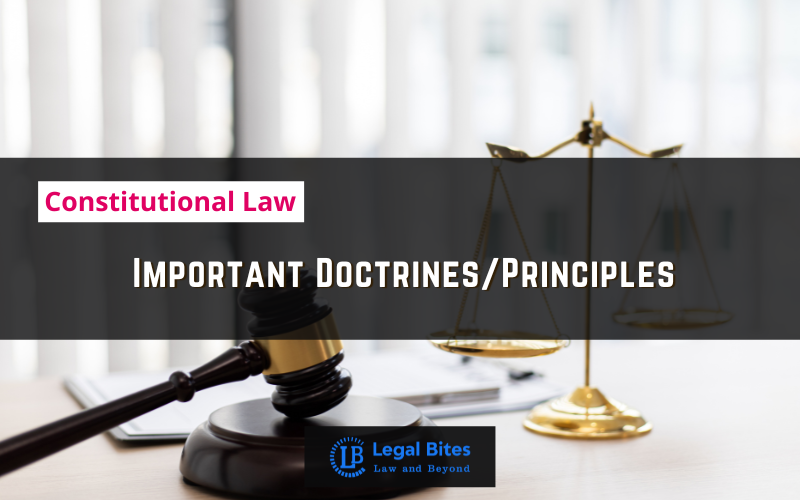Write a short note on the Rule of Law
Question: Write a short note on the Rule of Law. [MPJS 2011] Find the answer to the mains question only on Legal Bites. [Write a short note on the Rule of Law.] Answer The phrase ‘Rule of Law’ literally means that the law should rule, which means the law is superior to any other rule or ruler. The… Read More »
;
Question: Write a short note on the Rule of Law. [MPJS 2011] Find the answer to the mains question only on Legal Bites. [Write a short note on the Rule of Law.] Answer The phrase ‘Rule of Law’ literally means that the law should rule, which means the law is superior to any other rule or ruler. The framework under which the state functions are provided by this rule of law and its ultimate goal is to secure an individual’s life, liberties, and property. AV Dicey, a British jurist, who...
Question: Write a short note on the Rule of Law. [MPJS 2011]
Find the answer to the mains question only on Legal Bites. [Write a short note on the Rule of Law.]
Answer
The phrase ‘Rule of Law’ literally means that the law should rule, which means the law is superior to any other rule or ruler. The framework under which the state functions are provided by this rule of law and its ultimate goal is to secure an individual’s life, liberties, and property.
AV Dicey, a British jurist, who is the main promoter of “rule of law” in explanation of the rule of law in his book “Law of Constitution”, has provided its three facets, which in the Indian context means as follow:
- Supremacy of law: opposes the influence of arbitrary power, and excludes the existence of arbitrariness, of prerogative, or even of wide discretionary authority on the part of the government.
- Equality before the law: equality before law through the unjust, equal application of the law to all.
- The predominance of a legal spirit: The constitution of India is pervaded by the rule of law on the ground that the general principles of the constitution including the right to life and personal liberty supervene in determining the rights of private persons before the Courts.
Some of the basic principles of Rule of Law
- Law is supreme and nobody is above the law.
- All the things should be done according to a law not as per whim.
- No person should be suffered except for the breach of law.
- The absence of arbitrary is the soul of the rule of law.
- Equality before the law and equal protection of the law.
- Speedy trial.
- A fair and just procedure should be conducted.
- Independent and impartial judiciary.
In Kesavananda Bharati v. State of Kerala [AIR 1973 SC 1461]. In this case, the Hon’ble Supreme Court held that the Rule of Law is the “fundamental structure” of the Constitution.
In Indira Nehru Gandhi v. Raj Narain [1975 AIR 865], the court held that rule of law is also part of the basic structure and in the list rule of law was also added and it means that no amendment can be done in rule of law.
In the case of Bachan Singh v. the State of Punjab [[1951] SCR 451], popularly known as the “Death Penalty Case” the rule of law is free from arbitrary action if anywhere any action is done with arbitrary power then it will be considered as the denial of the concept of Rule of Law.
Important Mains Questions Series for Judiciary, APO & University Exams
- Constitutional Law Mains Questions Series Part-I
- Constitutional Law Mains Questions Series Part-I
- Constitutional Law Mains Questions Series Part-II
- Constitutional Law Mains Questions Series Part-IV
- Constitutional Law Mains Questions Series Part-V
- Constitutional Law Mains Questions Series Part-VI
- Constitutional Law Mains Questions Series Part-VII
- Constitutional Law Mains Questions Series Part-VIII
- Constitutional Law Mains Questions Series Part-IX
- Constitutional Law Mains Questions Series Part-X



